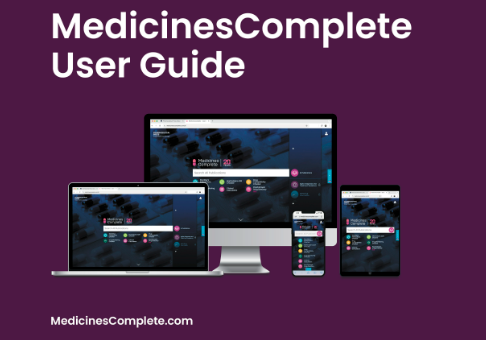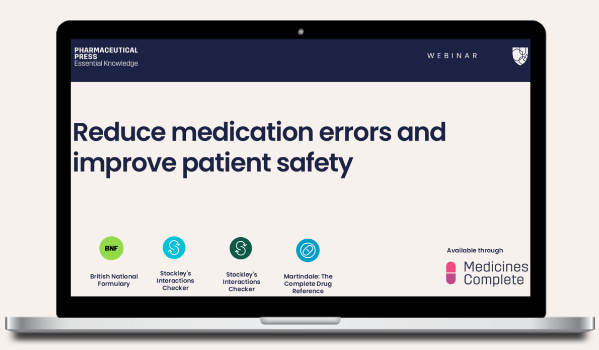Agilio: Diagnosis and Treatment Guidance December 2023 Update
This update contains 6 significant changes and 28 minor changes.
Significant Changes:
- Allergic rhinitis— reviewed. A literature search was conducted in August 2023 to identify evidence-based guidelines, UK policy, systematic reviews, and key randomized controlled trials published since the last revision of this topic. The topic has undergone minor restructuring. Recommendations in the Management section have been updated in line with current literature. Information on risk factors and on prescribing intranasal corticosteroids and the combined intranasal corticosteroid with antihistamine sprays has been added. The section on prescribing intranasal chromones has been removed as these are not available in the UK.
- Miscarriage— reviewed. A literature search was conducted in August 2023 to identify evidence-based guidelines, UK policy, systematic reviews, and key randomized controlled trials published since the last revision of the topic. No major changes to clinical recommendations have been made.
- Neck pain – cervical radiculopathy — reviewed. A literature search was conducted in October 2023 to identify evidence-based guidelines, UK policy, systematic reviews, and key RCTs published since the last revision of this topic. Minor structural changes have been made to the topic to align with up-to-date evidence. Short sections detailing risk factors and complications which can arise due to cervical radiculopathy have been added.
- Nappy rash — reviewed. A literature search was conducted in September 2023 to identify evidence-based guidelines, UK policy, systematic reviews, and key randomized controlled trials published since the last revision of this topic. No major changes to recommendations have been made.
- Dysmenorrhoea — reviewed. A literature search was conducted in October 2023 to identify evidence-based guidelines, UK policy, systematic reviews, and key randomized controlled trials published since the last revision of the topic. No major changes to recommendations have been made.
- Post-traumatic stress disorder — reviewed. A literature search was conducted in October 2023 to identify evidence-based guidelines, UK policy, systematic reviews, and key randomized controlled trials published since the last revision of this topic. The topic has undergone restructuring. No major changes to the recommendations have been made.
Minor Changes:
- Acne vulgaris — minor update. Recommendations on advice to give people who are being referred for possible isotretinoin treatment, and details on follow-up added in line with the MHRA drug safety update Isotretinoin (Roaccutane): introduction of new safety measures, including additional oversight of the initiation of treatment for patients under 18 years of age.
- Asthma — minor update. Revised the text on prescribing oral steroids to all patients with an acute asthma attack.
- Blackouts and syncope — minor update. To align with changes in the NICE guidelines Hypertension in adults: diagnosis and assessment [NG136] and Transient loss of consciousness (‘blackouts’) in over 16s [CG109]. Previous recommendation to assess a person with possible orthostatic hypotension was to measure blood pressure after three minutes standing has been revised to assess after at least 1 minute of standing.
- Boils, carbuncles, and staphylococcal carriage — minor update. Interactions section for flucloxacillin updated in line with updated manufacturer’s summary of product characteristics.
- Bronchiectasis — minor update. Interactions section for flucloxacillin updated in line with updated manufacturer’s summary of product characteristics.
- Candida – female genital — minor update. Information added that the manufacturers of fluconazole advise a washout period of approximately 1 week (5-6 half-lives) before becoming pregnant, in line with the updated summary of product characteristics.
- Candida – oral — minor update. Information added that the manufacturers of fluconazole advise a washout period of approximately 1 week (5-6 half-lives) before becoming pregnant, in line with the updated summary of product characteristics.
- Candida – skin— minor update. Information added that the manufacturers of fluconazole advise a washout period of approximately 1 week (5-6 half-lives) before becoming pregnant, in line with the updated summary of product characteristics.
- Cellulitis – acute — minor update. Interactions section for flucloxacillin updated in line with updated manufacturer’s summary of product characteristics.
- Chickenpox — minor update. The recommendation to seek immediate specialist advice for people who are immunocompromised and have suspected chickenpox has been clarified with the addition of information that immediate admission may be necessary for administration of intravenous aciclovir.
- Coronavirus – COVID-19 — minor update. Information about the potential adverse effects of myocarditis and pericarditis associated with COVID vaccines updated in line with manufacturers’ summary of product characteristics.
- Depression — minor update. Hyperprolactinaemia added as a possible adverse effect of citalopram in line with updated SPC.
- Diabetes – type 2 — minor update. The section on antidiabetic drugs has been clarified and prescribing information on tirzapetide has been added.
- Eczema – atopic — minor update. Interactions section for flucloxacillin updated in line with updated manufacturer’s summary of product characteristics.
- Gastroenteritis — minor update. The recommendation to prescribe tinidazole for treatment of giardiasis and the prescribing information have been removed from this topic as the product has been discontinued in the UK, and replaced with a recommendation to prescribe metronidazole as well as appropriate prescribing information.
- Heart failure – chronic — minor update. Information that empagliflozin is now also recommended by NICE as an option for treating symptomatic chronic heart failure with preserved or mildly reduced ejection fraction on the advice of a heart failure specialist has been added to this topic in line with the NICE technology appraisal Empagliflozin for treating chronic heart failure with preserved or mildly reduced ejection fraction. The heart failure classification for people with an LVEF of 40%, or 50% has also been clarified.
- Impetigo — minor update. Interactions section for flucloxacillin updated in line with updated manufacturer’s summary of product characteristics.
- Itch in pregnancy — minor update. Information in the secondary care management section was revised. We have removed the timeline for elective caesarean sections in women with intrahepatic cholestasis, as recent evidence suggests a reduction in gestational age from 37 weeks downwards to 35 in some cases to reduce foetal mortality.
- Leg ulcer – venous — minor update. Interactions section for flucloxacillin updated in line with updated manufacturer’s summary of product characteristics.
- Mastitis and breast abscess — minor update. Interactions section for flucloxacillin updated in line with updated manufacturer’s summary of product characteristics.
- Olecranon bursitis — minor update. Interactions section for flucloxacillin updated in line with updated manufacturer’s summary of product characteristics.
- Otitis externa — minor update. The recommendation for using systemic quinolones in the initial management of otitis externa has been removed.
- Otitis media with effusion — minor update. The recommendation for using systemic quinolones in the initial management of otitis externa has been removed.
- Paronychia – acute — minor update. Interactions section for flucloxacillin updated in line with updated manufacturer’s summary of product characteristics.
- Pityriasis versicolor — minor update. Information added that the manufacturers of fluconazole advise a washout period of approximately 1 week (5-6 half-lives) before becoming pregnant, in line with the updated summary of product characteristics.
- Pre-patellar bursitis — minor update. Interactions section for flucloxacillin updated in line with updated manufacturer’s summary of product characteristics.
- Trichomoniasis — minor update. Recommendations relating to tinidazole, and the prescribing information section for tinidazole have been removed from this topic as the product has been discontinued in the UK.
- Whitlow (staphylococcal and herpetic) — minor update. Interactions section for flucloxacillin updated in line with updated manufacturer’s summary of product characteristics.





